I was walking with a friend when she stopped and told me to go ahead of her. She has arachnophobia and was anxious about passing between two trees in front of us. I had no problem chopping through every web and clearing the way to our destination. It’s interesting to think about how something as small as a bug can be perceived in a way that makes it unapproachable.
It’s easy to understand why spiders seem scary, but they really are neat little organisms. There’s something relatable about a creature that lies in bed all day and gets food delivered right to them. Once we understand that they are more afraid of us than we are of them, we can see them as silly little goofballs. Some people joke about burning a building down just because it has spiders in it. Why do some people hate spiders while others love them?
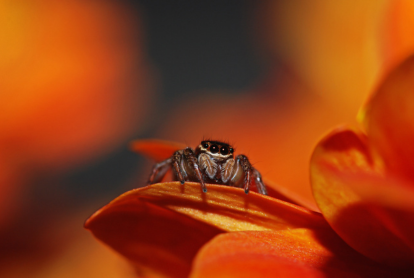
Plenty of phobias make sense. Early humans who knew when to exercise caution around spiders were more likely to pass their traits on. Early humans who died from spider bites weren’t so lucky. Some of our preferences come from our genes, while others come from lived experiences. Someone who had a traumatic encounter involving spiders is more likely to have an adverse reaction to seeing an arachnid crawling along the floor.
When we see the color pink, how can we be sure we both perceive it the same way? Maybe one of us sees a green color but agrees to call it pink. Each of us has our own qualia—a way of experiencing things that is unique. Human nature isn’t universal; it’s shaped by our material conditions. All the traits that make us unique come from our DNA and the material world around us.
Media depicts spiders as menacing—and some can be dangerous—but nothing is inherently good or bad. Things are only good or bad in relation to the material world. An individual spider might be bad because you don’t want pests in your home, but spiders in general can be helpful to humans. Spider venom is used to make lifesaving medicine. Spiders catch a lot of bugs, making them essential to many ecosystems. Spider silk is so strong that it’s used to make bulletproof armor. Without spiders, a lot of people would find life unlivable.
Media can warp our perception of the material world. It can make us see helpful little bugs as spine-chilling monsters. They don’t gain much from doing this, but when they really have something to lose, bourgeois media can completely hypnotize people. They can convince us that things like wars don’t exist simply by avoiding the language of war.
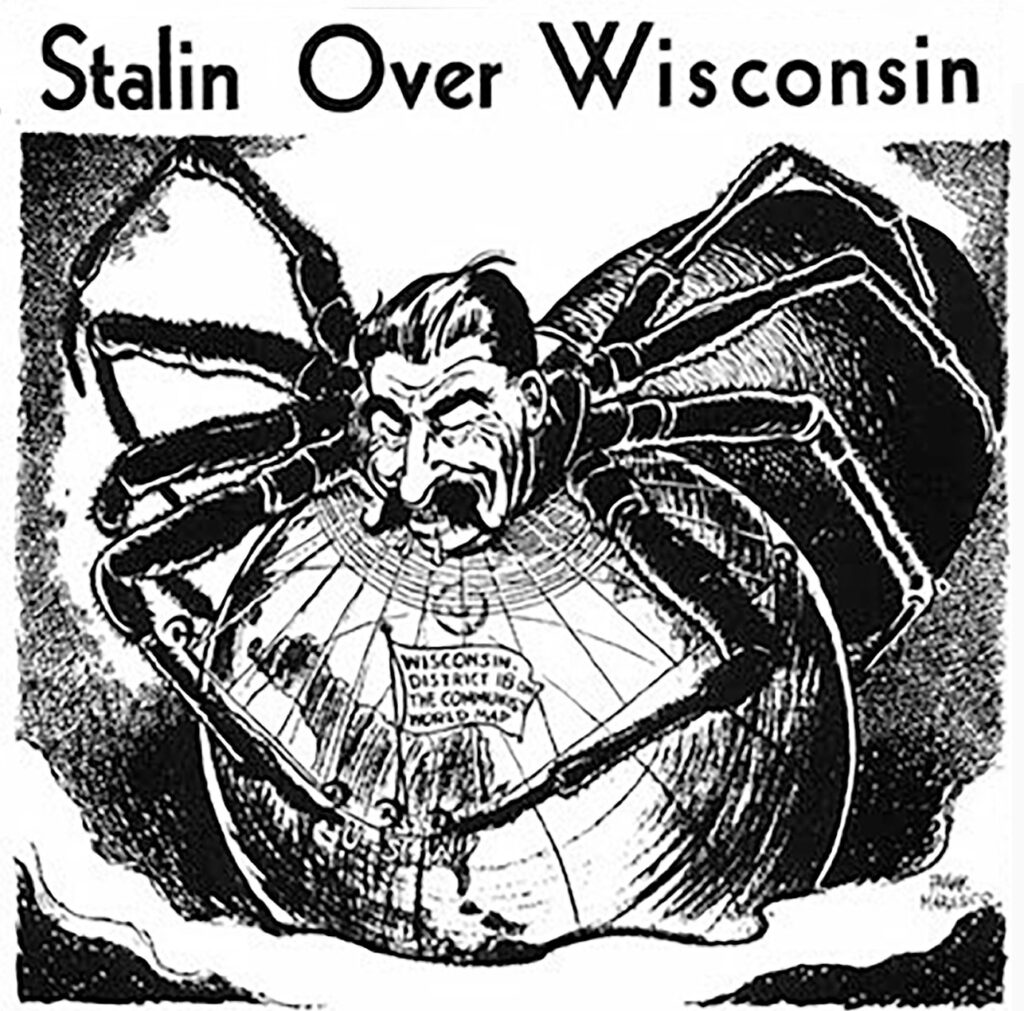
People die as a direct result of policies set by the bourgeoisie. When politics kills people, it’s called war. War and politics have a close relationship—that’s what Mao Zedong meant when he said, “Politics is war without bloodshed, while war is politics with bloodshed.” There can’t be war without politics backing it up, and there can’t be politics without war backing it up.
The bourgeoisie engage in class war against the proletariat every day. Every time they deny us lifesaving medicine; it’s an act of war. Every time they throw away food while people starve, it’s an act of war. Every time they deny us affordable housing, it’s an act of war, and that makes the homeless class war refugees.
Language is powerful, and strategically avoiding words and phrases can shift our perspective. Avoiding calling them refugees can make us less sympathetic to them. Bourgeois media circumvents talking about class war any way they can. They present the bourgeoisie as likable while demonizing the proletariat. And it works—most of the working class in the USA has at least one rich celebrity they are a fan of. Language is just one of the many things that shape our perception of the world.
The primary factor in shaping someone’s worldview is their relation to the means of production. The bourgeoisie engage in class warfare because they were conditioned to see it as normal. To survive, the capitalists had to make class war the standard. They are terrified of proletariat organization and react the way an arachnophobe reacts to seeing a spider: they’re either paralyzed with fear, or they smash their target.

The bourgeoisie stand to lose all their privileges. They are horrified, and most will never overcome this anxiety. Their fear of the working class prevents them from acting rationally and instead causes them to lash out. This could mean making economic decisions that hurt the working class, or it could mean using the police or private mercenaries to physically harm us. These criminals don’t get brought to justice because their crimes are seen as just how things are. The monstrous acts the rich commit may seem normal, but normal is an illusion: what’s normal to a spider is chaos to a fly.
The bourgeoisie throw food away and sell lifesaving medicine at inflated prices because it is more profitable. There are more than enough homes for everyone, but there’s more money to be made by selling them at inflated prices. They are so afraid of losing money and power that they make decisions that end people’s lives and force them to live in the most wretched conditions. Homelessness is a solvable problem—it’s just not profitable to solve. We can learn how to build a better society if we really try.
Studying revolution can seem scary. Not only is the subject itself serious in nature, but the sheer amount of revolutionary literature makes finding a place to start on your own nearly impossible. But there’s a worldwide community ready to lend a hand. Here at Real Progressives, we hold book clubs where we talk about educational literature and help each other learn. There are tons of YouTube channels geared toward educating—I recommend Socialism For All. And there are powerful lectures like the 1986 Yellow Parenti video. We can overcome our fear of the bourgeoisie because they are more afraid of us than we are of them.
When we can’t see how the world can become a better place, we need a new perspective, and that comes from new media and ideas. Once we learn revolutionary language and concepts, the future stops being scary and starts filling us with hope. We will have a brighter future, and it starts with doing some reading. Anyone can do it—you’re not afraid of a little old book, are you?


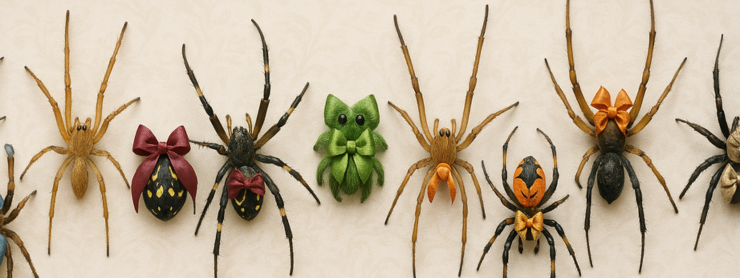






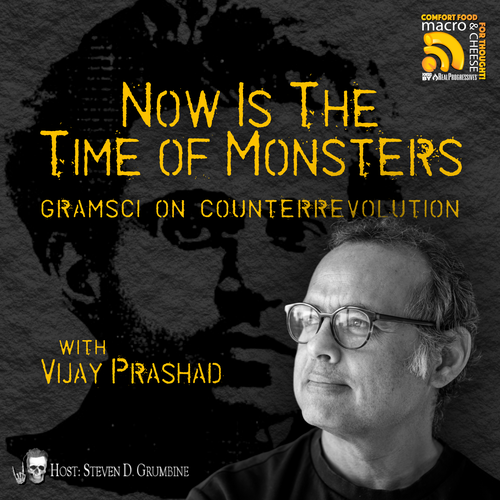
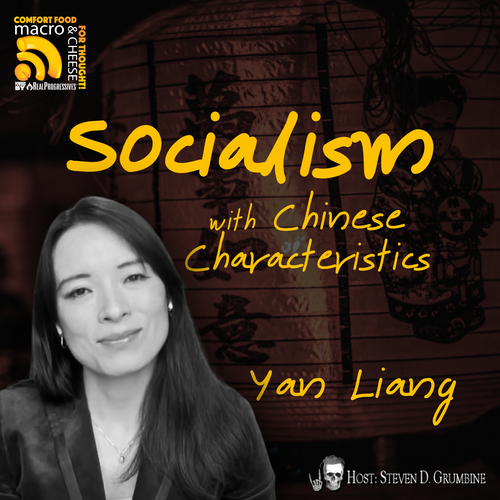
2 thoughts on “What Are You Afraid Of?”